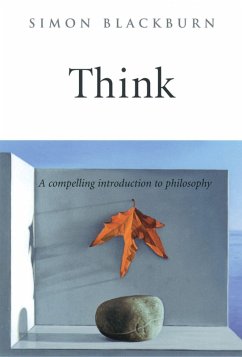
Reconstructing Schopenhauer's Ethics (eBook, ePUB)
Hope, Compassion, and Animal Welfare
Versandkostenfrei!
Sofort per Download lieferbar
25,95 €
inkl. MwSt.
Weitere Ausgaben:

PAYBACK Punkte
13 °P sammeln!
At the apex of his influence, from about 1860 up to the start of World War I, Schopenhauer was known first and foremost as a philosopher of pessimism. Still today, his main reputation is as one of the few philosophers to have argued that it would have been better never to have been. Sandra Shapshay aims to complicate and challenge this predominant picture of Schopenhauer's ethical thought, arguing that while the pessimistic, resigned Schopenhauer represents one side of the thinker, there is another, more hopeful side that is equally important to his legacy and essential to fully understanding ...
At the apex of his influence, from about 1860 up to the start of World War I, Schopenhauer was known first and foremost as a philosopher of pessimism. Still today, his main reputation is as one of the few philosophers to have argued that it would have been better never to have been. Sandra Shapshay aims to complicate and challenge this predominant picture of Schopenhauer's ethical thought, arguing that while the pessimistic, resigned Schopenhauer represents one side of the thinker, there is another, more hopeful side that is equally important to his legacy and essential to fully understanding his philosophy. Schopenhauer's ethical thought contains a hopeful, progressive strand, and the main task of this book is to reconstruct it. The resulting position, which Shapshay terms "compassionate moral realism," offers a hybrid Kantian moral realist/sentimentalist theory and a Schopenhauerian value ontology of degrees of inherent value. The reconstruction is novel in three main ways. First, it views Schopenhauer as a more faithful Kantian than most commentators have been apt to recognize. Second, it sees Schopenhauer's philosophy as an evolving rather than static body of thought, especially with respect to the place of the Platonic Ideas in his system; Schopenhauer's views in the philosophy of nature changed as he encountered proto-Darwinian thought, and this change weakens Schopenhauer's own grounds for pessimism. A third novelty is the claim, concerning his ethical thought, that there are really two Schopenhauers rather than one: the "Knight of Despair" and the "Knight of Hope" distinction introduced in this book helps to capture the incompatibility between the resignationist and the compassionate moral realist sides of Schopenhauer's ethical thought.
Dieser Download kann aus rechtlichen Gründen nur mit Rechnungsadresse in A, B, BG, CY, CZ, D, DK, EW, E, FIN, F, GR, HR, H, IRL, I, LT, L, LR, M, NL, PL, P, R, S, SLO, SK ausgeliefert werden.













